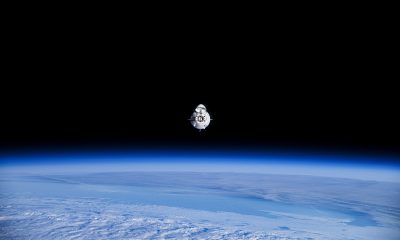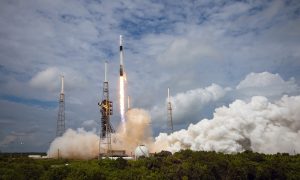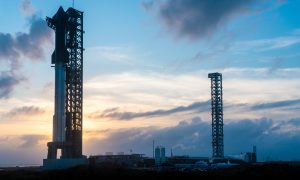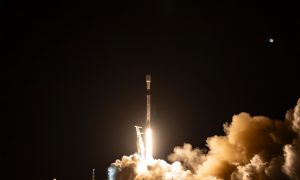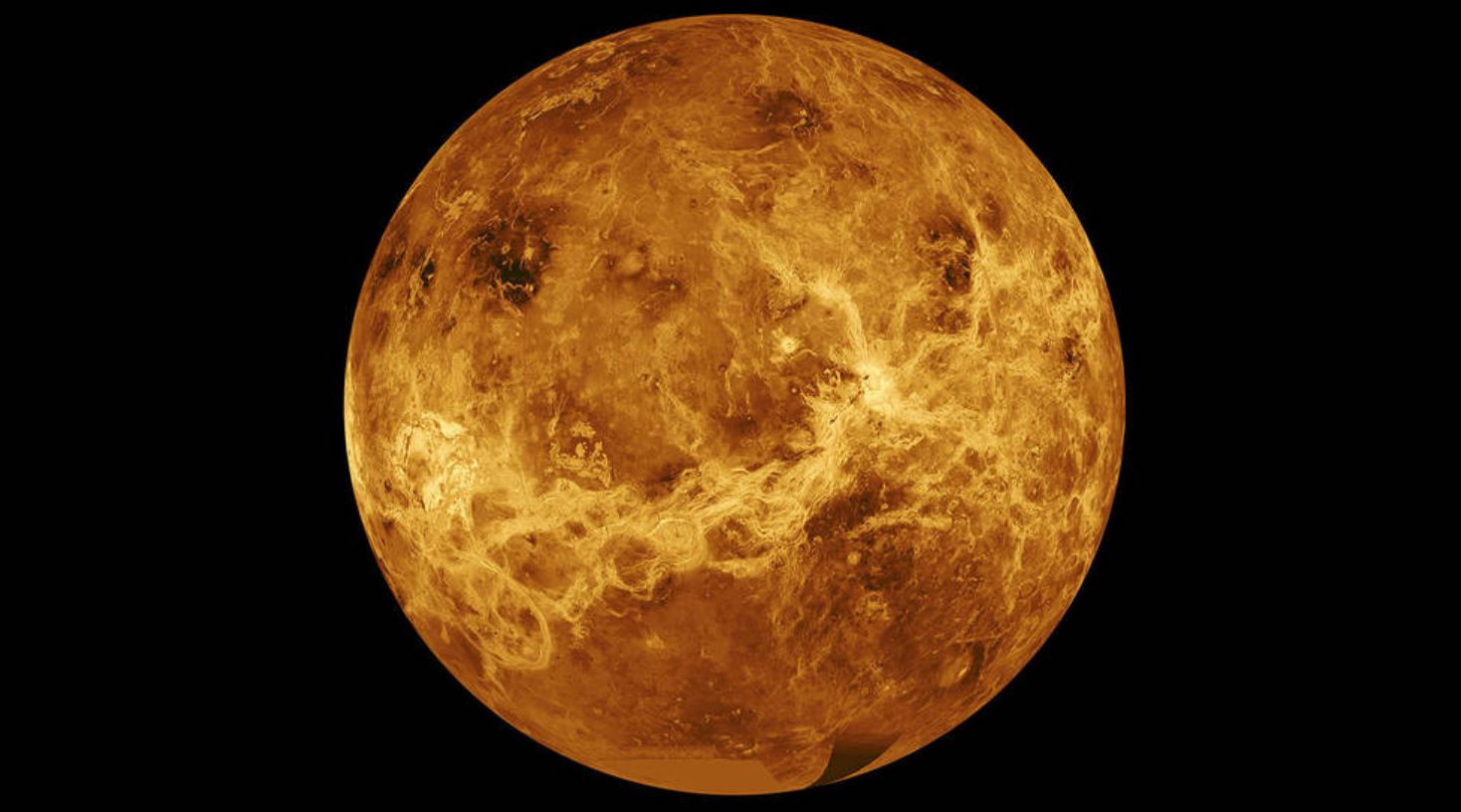

News
Mars has competition from Venus after new study shows signs of life
NASA and SpaceX are simultaneously planning their trips to Mars and the Moon, but a recent study published in Nature Astronomy has brought a different planet into the running for a new near-term exploration mission: Venus.
A team of scientists led by Dr. Jane Graeves of Cardiff University in the UK just announced the discovery of phosphine in the clouds of Venus. This rare molecule is made either industrially or as a byproduct of microbes that live in oxygen-free environments, meaning there’s serious evidence that life may exist on our sister planet.
“This was an experiment made out of pure curiosity, really,” Dr. Graeves detailed to the Royal Astronomical Society. “I thought we’d just be able to rule out extreme scenarios, like the clouds being stuffed full of organisms. When we got the first hints of phosphine in Venus’ spectrum, it was a shock!”
With NASA’s 2020 Mars Rover Perseverance on its way to do some astrobiological science on our red neighbor, this new finding on Venus looks to now have some high-level advocates for prioritized exploration.
“Life on Venus? The discovery of phosphine, a byproduct of anaerobic biology, is the most significant development yet in building the case for life off Earth,” NASA Administrator Jim Bridenstine tweeted about the news shortly after its publication. “About 10 years ago NASA discovered microbial life at 120,000ft in Earth’s upper atmosphere. It’s time to prioritize Venus.”
https://twitter.com/JimBridenstine/status/1305598182571810822
Planetary scientist Paul Byrne of North Carolina State University echoed this same sentiment in a quote published by The New York Times. “If this planet is active and is producing phosphine, and there is something that’s making it in the Venus atmosphere, then by God almighty, forget this Mars nonsense,” Byrne opined. “We need a lander, an orbiter, we need a program.”
Similar to thinking about Mars’ ancient past being filled with more Earth-like components such as water bodies (or perhaps not), Venus is thought to have been the home to lakes, rivers, and oceans before a runaway greenhouse effect made it into the hellish landscape it is today. This thinking has partly lead to speculation about the possibility of microbes migrating or developing in the clouds of the planet as ‘aerial’ life where temperatures are much more Earth-like, albeit very acidic. “Finding phosphine on Venus was an unexpected bonus! The discovery raises many questions, such as how any organisms could survive. On Earth, some microbes can cope with up to about 5% of acid in their environment – but the clouds of Venus are almost entirely made of acid,” commented team member Dr. Clara Sousa Silva of MIT.
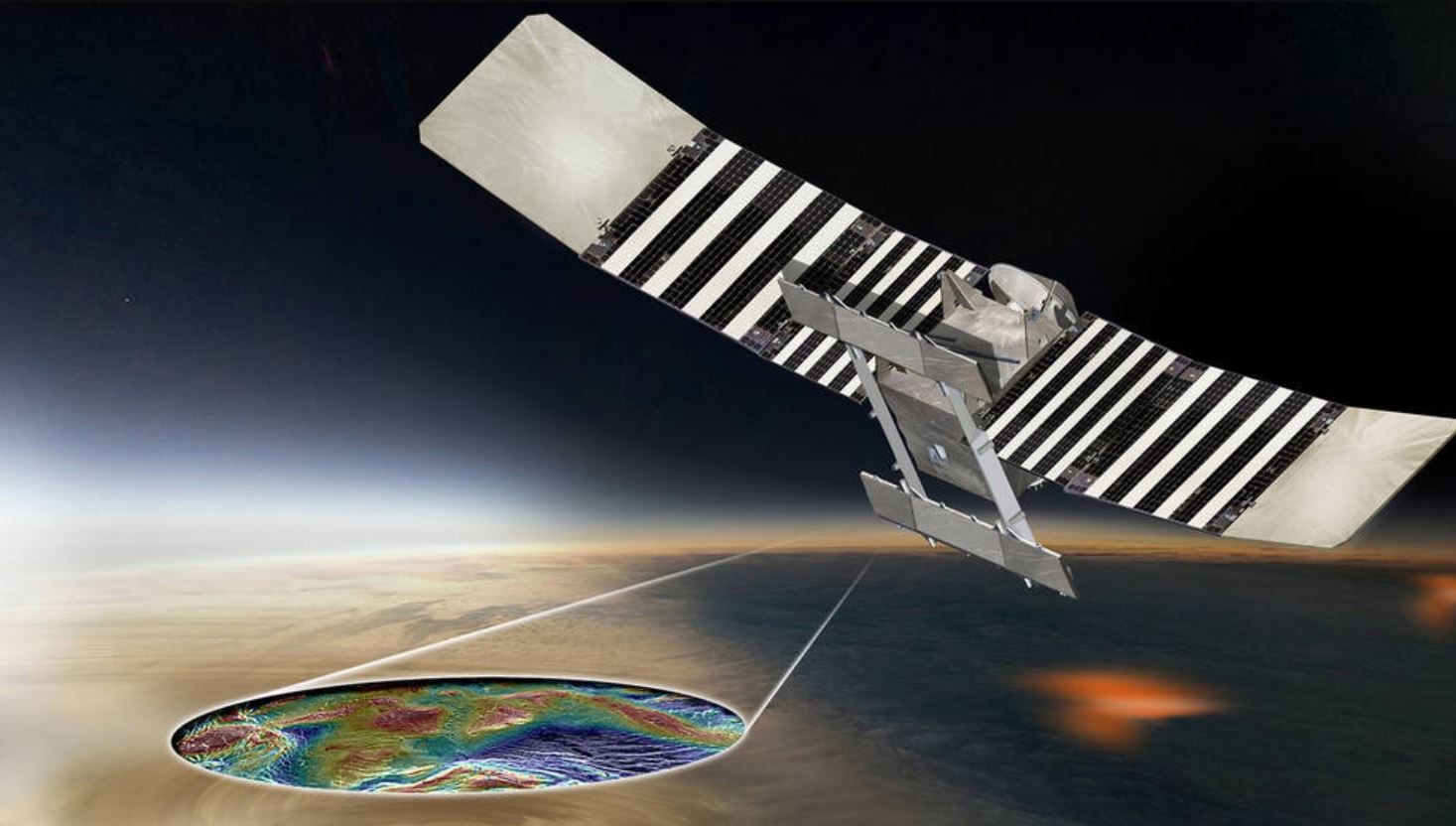
For planetary science enthusiasts, of course, the idea of looking for life or even a new home for humans in the clouds of Venus isn’t new. Astrobiologist David Grinspoon, for one, has been advocating for the planet’s cause for quite some time. “Venus, this planet where I’ve been proposing for decades that there could be a biosphere in the clouds,” he exclaimed in a recent video chat about the discovery. “I mean, Venus is a place we do not associate with extraterrestrial life… It’s so hot, and so dry, the pressure’s so huge…we think life is gonna be anywhere but Venus. But interestingly if you go 30 miles up into the clouds, it’s rather comfortable in the sense that it’s sort of like room temperature [and pressure] in the room you’re in right now.”
The discovery of phosphine on Venus is also exciting for exoplanet hunting endeavors, i.e., looking for signs of life on planets outside our solar system. “It’s very exciting because phosphine is a gas that should not exist in an atmosphere like Venus’,” Grinspoon explained. “It stands out as an anomaly… Not only that, phosphine has been previously suggested as a very good biosignature that we might find on an exoplanet – a gas that’s made by life. It’s not easy to make in non-biological ways.”
A renewed call for Venusian exploration is already ready to be answered by a few scientists and groups, one notable example being startup launch provider Rocket Lab. As a rocket company focused on dedicated missions for small payloads, Rocket Lab stands as a ready and willing partner for any organization looking to gather more data from Venus directly. In fact, CEO Peter Beck already has plans in the works for the planet most symbolically synonymous with romance.
“I’m madly in love with Venus,” Beck said on August 5th this year during a live streamed company update. “I’m working very hard to put together a private mission to go to Venus in 2023… At the very least, I think it’s a needle-mover even for just a private mission to try and go do something interplanetary. That sends a message to the rest of the world that, ‘Hey, look — we can do these things privately.’”
Another notable mission that’s relevant to Beck and Rocket Lab’s goals for small payload missions to interplanetary destinations was the Mars Cube One companions of NASA’s InSight lander launched in 2018. After traveling the the red planet with the lander, the twin cube satellites were able to send back data and a photo of Mars to Earth. This proved that tiny affordable spacecraft could be used for some serious deep-space science. Perhaps one of the biggest discoveries in our solar system of late could be followed up by an itty bitty mission (respectively)?
You can watch Dr. Jane Greaves, explain the discovery on Venus in detail:
News
These Tesla, X, and xAI engineers were just poached by OpenAI
The news is the latest in an ongoing feud between Elon Musk and the Sam Altman-run firm OpenAI.

OpenAI, the xAI competitor for which Elon Musk previously served as a boardmember and helped to co-found, has reportedly poached high-level engineers from Tesla, along with others from xAI, X, and still others.
On Tuesday, Wired reported that OpenAI hired four high-level engineers from Tesla, xAI, and X, as seen in an internal Slack message sent by co-founder Greg Brockman. The engineers include Tesla Vice President of Software Engineering David Lau, X and xAI’s head of infrastructure engineering Uday Ruddarraju, and fellow xAI infrastructure engineer Mike Dalton. The hiring spree also included Angela Fan, an AI researcher from Meta.
“We’re excited to welcome these new members to our scaling team,” said Hannah Wong, an OpenAI spokesperson. “Our approach is to continue building and bringing together world-class infrastructure, research, and product teams to accelerate our mission and deliver the benefits of AI to hundreds of millions of people.”
Lau has been in his position as Tesla’s VP of Software Engineering since 2017, after previously working for the company’s firmware, platforms, and system integration divisions.
“It has become incredibly clear to me that accelerating progress towards safe, well-aligned artificial general intelligence is the most rewarding mission I could imagine for the next chapter of my career,” Lau said in a statement to Wired.
🚨Optimistic projections point to xAI possibly attaining profitability by 2027, according to Bloomberg's sources.
If accurate, this would be quite a feat for xAI. OpenAI, its biggest rival, is still looking at 2029 as the year it could become cash flow positive.💰 https://t.co/pE5Z9daez8
— TESLARATI (@Teslarati) June 18, 2025
READ MORE ON OPENAI: Elon Musk’s OpenAI lawsuit clears hurdle as trial looms
At xAI, Ruddarraju and Dalton both played a large role in developing the Colossus supercomputer, which is comprised of over 200,000 GPUs. One of the major ongoing projects at OpenAI is the company’s Stargate program,
“Infrastructure is where research meets reality, and OpenAI has already demonstrated this successfully,” Ruddarraju told Wired in another statement. “Stargate, in particular, is an infrastructure moonshot that perfectly matches the ambitious, systems-level challenges I love taking on.”
Elon Musk is currently in the process of suing OpenAI for shifting toward a for-profit model, as well as for accepting an investment of billions of dollars from Microsoft. OpenAI retaliated with a counterlawsuit, in which it alleges that Musk is interfering with the company’s business and engaging in unfair competition practices.
Elon Musk confirms Grok 4 launch on July 9 with livestream event
News
SpaceX share sale expected to back $400 billion valuation
The new SpaceX valuation would represent yet another record-high as far as privately-held companies in the U.S. go.

A new report this week suggests that Elon Musk-led rocket company SpaceX is considering an insider share sale that would value the company at $400 billion.
SpaceX is set to launch a primary fundraising round and sell a small number of new shares to investors, according to the report from Bloomberg, which cited people familiar with the matter who asked to remain anonymous due to the information not yet being public. Additionally, the company would sell shares from employees and early investors in a follow-up round, while the primary round would determine the price for the secondary round.
The valuation would represent the largest in history from a privately-owned company in the U.S., surpassing SpaceX’s previous record of $350 billion after a share buyback in December. Rivaling company valuations include ByteDance, the parent company of TikTok, as well as OpenAI.
Bloomberg went on to say that a SpaceX representative didn’t respond to a request for comment at the time of publishing. The publication also notes that the details of such a deal could still change, especially depending on interest from the insider sellers and share buyers.
Axiom’s Ax-4 astronauts arriving to the ISS! https://t.co/WQtTODaYfj
— TESLARATI (@Teslarati) June 26, 2025
READ MORE ON SPACEX: SpaceX to decommission Dragon spacecraft in response to Pres. Trump war of words with Elon Musk
SpaceX’s valuation comes from a few different key factors, especially including the continued expansion of the company’s Starlink satellite internet company. According to the report, Starlink accounts for over half of the company’s yearly revenue. Meanwhile, the company produced its 10 millionth Starlink kit last month.
The company also continues to develop its Starship reusable rocket program, despite the company experiencing an explosion of the rocket on the test stand in Texas last month.
The company has also launched payloads for a number of companies and government contracts. In recent weeks, SpaceX launched Axiom’s Ax-4 mission, sending four astronauts to the International Space Station (ISS) for a 14-day stay to work on around 60 scientific experiments. The mission was launched using the SpaceX Falcon 9 rocket and a new Crew Dragon capsule, while the research is expected to span a range of fields including biology, material and physical sciences, and demonstrations of specialized technology.
News
Tesla Giga Texas continues to pile up with Cybercab castings
Tesla sure is gathering a lot of Cybercab components around the Giga Texas complex.

Tesla may be extremely tight-lipped about the new affordable models that it was expected to start producing in the first half of the year, but the company sure is gathering a lot of Cybercab castings around the Giga Texas complex. This is, at least, as per recent images taken of the facility.
Cybercab castings galore
As per longtime drone operator Joe Tegtmeyer, who has been chronicling the developments around the Giga Texas complex for several years now, the electric vehicle maker seems to be gathering hundreds of Cybercab castings around the factory.
Based on observations from industry watchers, the drone operator appears to have captured images of about 180 front and 180 rear Cybercab castings in his recent photos.
Considering the number of castings that were spotted around Giga Texas, it would appear that Tesla may indeed be preparing for the vehicle’s start of trial production sometime later this year. Interestingly enough, large numbers of Cybercab castings have been spotted around the Giga Texas complex in the past few months.
Cybercab production
The Cybercab is expected to be Tesla’s first vehicle that will adopt the company’s “unboxed” process. As per Tesla’s previous update letters, volume production of the Cybercab should start in 2026. So far, prototypes of the Cybercab have been spotted testing around Giga Texas, and expectations are high that the vehicle’s initial trial production should start this year.
With the start of Tesla’s dedicated Robotaxi service around Austin, it might only be a matter of time before the Cybercab starts being tested on public roads as well. When this happens, it would be very difficult to deny the fact that Tesla really does have a safe, working autonomous driving system, and it has the perfect vehicle for it, too.
-

 Elon Musk1 week ago
Elon Musk1 week agoTesla investors will be shocked by Jim Cramer’s latest assessment
-

 News2 weeks ago
News2 weeks agoTesla Robotaxi’s biggest challenge seems to be this one thing
-

 Elon Musk1 day ago
Elon Musk1 day agoElon Musk confirms Grok 4 launch on July 9 with livestream event
-

 News2 weeks ago
News2 weeks agoWatch the first true Tesla Robotaxi intervention by safety monitor
-

 News5 days ago
News5 days agoTesla Model 3 ranks as the safest new car in Europe for 2025, per Euro NCAP tests
-

 Elon Musk2 weeks ago
Elon Musk2 weeks agoA Tesla just delivered itself to a customer autonomously, Elon Musk confirms
-

 Elon Musk2 weeks ago
Elon Musk2 weeks agoxAI welcomes Memphis pollution results, environmental groups push back
-

 Elon Musk2 weeks ago
Elon Musk2 weeks agoElon Musk confirms Tesla Optimus V3 already uses Grok voice AI




